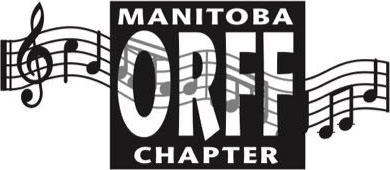Over the next few issues, the advocacy committee would like to provide information to our membership which connects music education with more mainstream educational ideas. This month’s article addresses the issues of musical creativity and its implications for brain development. Enjoy! Read more
Music Ed: emotional, physical and cognitive benefits
As music educators, we occasionally find it necessary to justify the inclusion of music in school curricula. Often, we are reluctant to call upon research that established links between music study and achievement in other subject areas. We know in our hearts that we don't teach music to improve math scores. Unfortunately, maintaining a "music for its own sake" stance can be difficult when parents, administrators and other policy makers have not directly benefitted from a rich and rewarding relationship with music during their own school experiences. We can, however, offer evidence, backed by solid research, that music education can have strong emotional, physical and cognitive benefits. In early 2015, Susan Hallam, research professor at University College London's Institute of Education, published a document that synthesizes the results of important studies on the effects of music on learning and behavior conducted over the past 40 years. The executive summary of her report, "The Power of Music", is included here. Those who wish to delve more deeply into specific studies can follow this link.
MUSIC & MUSIC EDUCATION ADVOCACY FROM CRITICAL PERSPECTIVE
WAYNE BOWMAN Brandon, Manitoba Canada
IMC World Forum on Music, Tunis, Tunisia (October 20, 2009)
Reprinted with permission
INTRODUCTION: Advocacy is a tool. Like all tools, it may be useful. But like all tools it has its limitations and potential dangers, its proper and improper uses. Understanding the difference is critical, because using the wrong tool for a given task can make quite a mess of things. One of the things that worries me about music education’s passion for advocacy is its substitution for other tools, tools that are arguably more important to the future of our profession than advocacy: philosophical inquiry, in particular. Although they may appear to be asking the same questions, advocates and philosophers are really engaged in very different processes, pursuing very divergent ends. Philosophy is very poorly suited to advocacy’s political ends, and advocacy arguments are seldom very philosophically sophisticated. Advocacy is inherently conservative, a plea for support of the status quo. Philosophy’s relentless pursuit of truth may and often does threaten status quo practice. The advocate generally assumes and argues that things like music and music education are unconditionally good. But philosophical inquiry shows pretty unequivocally that musical engagements are not unconditionally good: they may harm as well as heal, subvert as well as advance the goals of education. Involvement in music does not automatically lead to desirable educational outcomes, and indeed, I would argue that the need for advocacy often arises precisely because of failure to deliver the discernible, functional benefits for which the music education profession exists. It becomes necessary to advocate when people cannot discern the tangible benefits of music making and music study; when they cannot see clearly how education makes students’ current and future lives clearly better; when they do not experience music as a vital cultural force.




